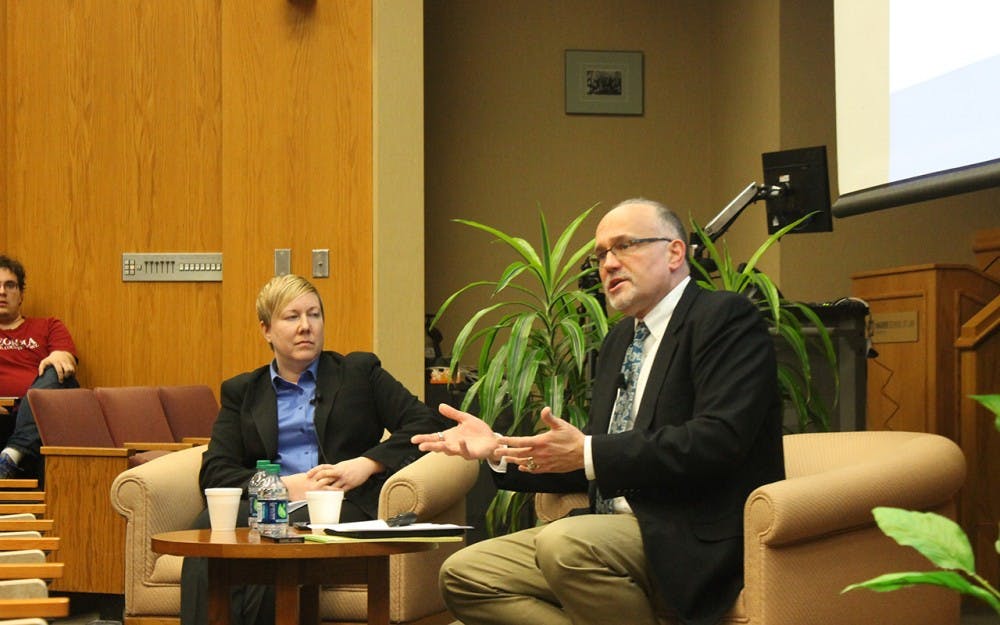Bathrooms, sexuality and statistics were the focus of discussion late Wednesday afternoon at the Maurer School of Law. The event was “Dignity, Law, and Transgender Lives” and 100 people attended. Steve Sanders, an associate professor at the law school, moderated the event. His two guests were Joshua Block, an American Civil Liberties Union attorney via video chat, and Jody Herman from the Williams Institute at University of California, Los Angeles.
Block said he is one of many lawyers around the nation who advocate for transgender equality. Gavin Grimm, one of his current clients, is a transgender boy, meaning he was labeled a girl at birth but identifies as a boy. Gavin’s case against his high school concerns bathroom usage and will be heard in front of the United States Supreme Court this spring. Block said regardless of what happens with the case, he wanted to make it clear the problem only arose when some parents found out Grimm was transgender.
“If the school did not know he was transgender none of this would have happened,” he said. “It’s really about social mores and fear of people that might be different from us.”
Block said people wanted to simplify an issue which is complex because of gender identity. Society cannot have these sweeping exclusions, he said.
Jody Herman, from the Williams Institute, said the fear of what people do not understand is starting to hurt a lot of transgender people. Herman said there were thousands of respondents to the 2015 U.S. Transgender Survey. There were respondents from every U.S. state and territory. From this survey she learned a lot of things national surveys had missed for years, she said.
“Transgender folks don’t just live in San Francisco or New York,” she said.
The 2015 survey research found 17 percent of respondents had to leave school because treatment was so bad. More than half avoided using public restrooms altogether by avoiding eating and drinking.
“If you can’t use the restroom you can’t go anywhere,” Herman said. “It’s not only about dignity. It’s an ability to function.”
She said the survey was old, and she would be interested in seeing newer data because there has been progress.
“For the federal landscape there has been a lot of progress,” Herman said.
She said federally guaranteed protections from departments like the Department of Housing and Urban Development, the Department of Defense and former President Barack Obama’s health care law are examples of progress.
On a state level, she said a lot more could be done. She displayed graphics depicting which states provide the best and worst protections for transgender people. Indiana is part of a larger area of the country that has room for improvement in nondiscrimination laws, she said.
She said states like Indiana need to do more for their transgender citizens. She said lawyers, activists and members of the transgender community thought progress would come sooner and easier than anyone thought.
“A lot of that optimism and confidence has come to a screeching halt,” Herman said.
People cannot forget that there are people working toward transgender equality from many approaches, she said. People should not be discouraged by what sometimes seems like small victories.
“There’s room for optimism,” Herman said.






